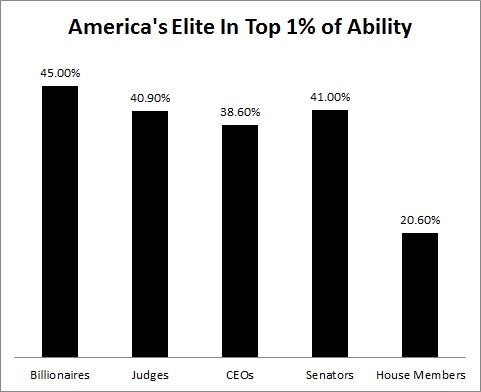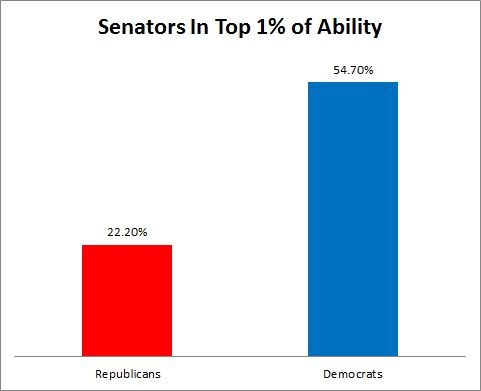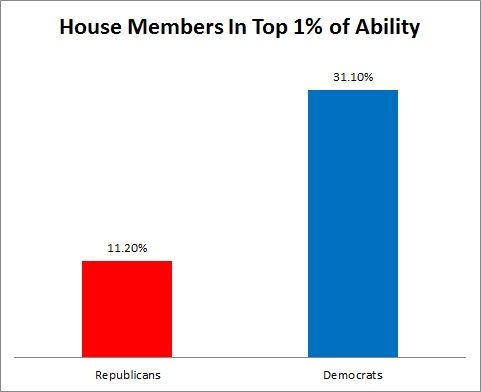Intelligence
Who’s Smarter? Republicans and Democrats in Congress
U.S. Senators and House members are smarter than you think.
Posted November 4, 2013 Reviewed by Ekua Hagan
“Suppose you were an idiot, and suppose you were a member of Congress; but I repeat myself.” — Mark Twain
"Congress's Average I.Q. Expected to Rise in 2015" — The Borowitz Report
In a recent USA Today poll, roughly half of responders said we should replace everyone in Congress. Twain’s quote and Andy Borowitz's humor column for The New Yorker suggest the view that Congress members are not very bright is an old and popular belief.
Although there have been research studies examining whether liberal and conservative voters differ in brainpower level, there have been no studies looking at Congress. Until now.
In one of my research papers published earlier this year, Investigating America’s Elite: Cognitive Ability, Education, and Sex Differences, I examined the brainpower levels of multiple groups who hold influence in American society: Fortune 500 CEOs, billionaires, federal judges, Senators, and House members.
Individuals were deemed to be in the top one percent of ability if they attended an undergraduate or graduate school that had extremely high average standardized test scores that put the average person in the top one percent (see Table 1 for a complete list of “elite schools” that made the cut). Researchers have determined that standardized tests, such as the SAT and ACT, are good measures of general intelligence, or g. For more detail on the method used, including its limitations, please read the paper, published in the journal Intelligence.

45.0 percent of billionaires, 40.9 percent of judges, and 38.6 percent of CEOs were found to be in the top 1 percent of cognitive ability. What about Congress? It turns out 41.0 percent of Senators and 20.6 percent of House members were in the top 1 percent. This illustrates Senators were similar in brainpower to billionaires, judges, and CEOs, but House members were not quite as smart.
But what happens when we examine Republicans and Democrats?


In both the Senate and House, Democrats were significantly smarter than Republicans when looking at just the top 1 percent, and more likely to attend an “elite school.” Specifically Harvard. Among Democrats, 15.1 percent of Senators and 12.4 percent of House members attended Harvard. Among Republicans these percentages were 8.9 percent and 1.3 percent, respectively.
Research has indicated that individuals who are politically liberal are more likely to have higher ability than those who are politically conservative in America (Kanazawa, 2010) and Britain (Deary, Batty, & Gale, 2008). However, this finding pertained to voters rather than political leaders those people had elected. This study demonstrates that in America, Democrats are more likely than Republicans to have a higher percentage of Senate and House members in the top 1 percent of cognitive ability and Democrats had a higher ability and education level, on average, than Republicans.
I have no idea how to explain these findings. But although they may not always get along, members of Congress, on average, are not as unintelligent and uneducated as some might think.
© 2013 by Jonathan Wai
For more of Finding the Next Einstein: Why Smart is Relative, go here.
References
Deary, I. J., Batty, G. D., & Gale, C. R. (2008). Bright children become enlightened adults. Psychological Science, 19, 1-6.
Kanazawa, S. (2010). Why liberals and atheists are more intelligent. Social Psychology Quarterly, 73, 33-57.
Wai, J. (2013). Investigating America’s elite: Cognitive ability, education, and sex differences. Intelligence, 41, 203-211.


